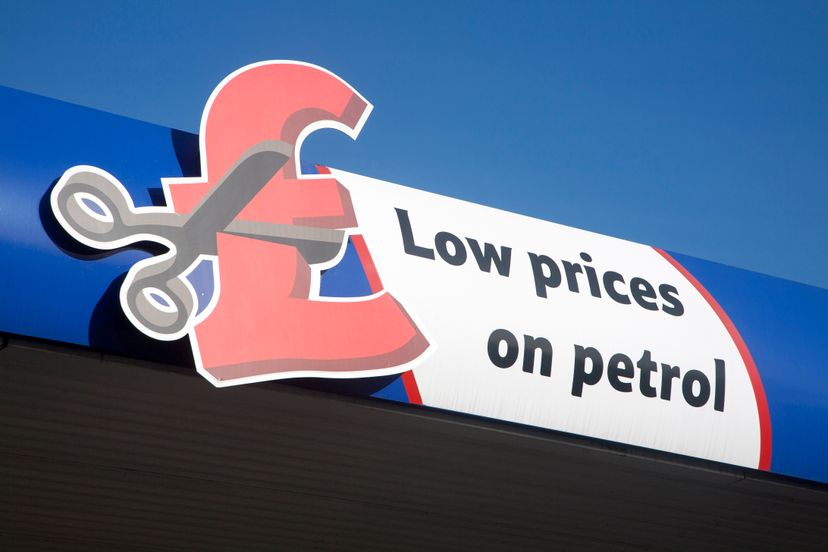
About This Quiz
Brits and Americans may speak a common language, but you might be surprised to find out just how much the English language can differ. Sure, you might know from television or movies that Brits call their butts their "bums." And you probably know that when they talk about "football," they really mean soccer.
But did you know that being "knackered" is the same as being tired? Or that if you tell an Englishman that you're "pissed," he won't think you're angry -- he'll think you're drunk? And then there's food. If you're a picky eater and will soon be heading to the U.K., you'd better bone up on your British English.
Zucchini is called "courgetti" across the pond, while shrimp are dubbed "prawns." So what is the British English name for prawns? Well, they call those prawns, too, making no distinction between the two types of shellfish. To make things more confusing, our French fries are "chips" to the Brits, who call our potato chips "crisps." So if you want potato chips with your grilled cheese sandwich, you must ask for crisps. Actually, you'll need to ask for a toastie with crisps, because "toastie" is the English term for grilled cheese.
But don't let yourself get bamboozled by all of these terms. Just take the quiz!
Americans store baggage in the trunk of a car, but to the Brits, it'll always be a boot.
Brits head to the chemist's to fill a prescription, while people in the U.S. head to their favorite pharmacy.
It might look like a closet to U.S. readers, but in British books, Harry clearly made his home in the cupboard under the stairs.
Advertisement
A flat is the British equivalent to the apartment in the U.S.
Londoners call elevators "lifts," as in something that lifts people between floors.
Nappies are the British equivalent to diapers.
Advertisement
Forget gas - the Brits head to the petrol station to fill 'er up.
Americans call it trash or garbage, but to the Brits it's just plain rubbish.
In British English, pants are undergarments, not jeans or khakis.
Advertisement
The British equivalent to American pants is trousers.
Snogging is a very British term for kissing.
To the Brits, those shorter hairs over the eyebrows are a fringe. It's only in the U.S. that they are known as bangs.
Advertisement
A biscuit is a cookie, while prats and wallys are unpleasant folks.
British words often have more letters than their American counterparts - think programme or catalogue.
Many American words have an extra "u" in England - see labour, colour and harbour.
Advertisement
"I have already eaten" is in the present perfect tense, which is used more often in British English. Americans would say "I already ate" instead.
Chuffed is a British term for "pleased," though it can also refer to passing gas.
A British person who says "they've got the hump" is annoyed. This expression is rare to nonexistent in American English.
Advertisement
The Brits might say "Bob's your uncle" as a type of exclamation - think "ta-da!" in U.S. English. So an appropriate response would be to show appreciation.
"Knees up" probably literally refers to dancing and is a common British expression that concerns partying.
Chin-wagger is British slang for someone who tells stories or gossips often.
Advertisement
When writing his famous dictionary, Noah Webster was determined to spell words the way they sounded. That meant removing lots of extra letters from traditional British words to make them "American."
Paper money is referred to as "notes" in the U.K., while people in the U.S. call it "bills."
The English ask for a bill when they're ready to pay their tabs, while Americans request a check.
Advertisement
The U.S. takes a discussion off the table when tabling it, while the English use this term to indicate that something is back on the table.
U.K. buildings start with the ground level, while the first floor is typically the second level. In the U.S., the ground floor and first floor are typically one and the same.
The Brits may know their mathematics, but they call it maths, never math.
Advertisement
Americans favor the French pronunciation, leaving off the "h," while Brits pronounce the full "h" sound.
It may be a driver's license in the U.S., but in England, it's a driving licence.
The Brits use the term "new lease of life," while the American saying is "new lease on life."
Advertisement